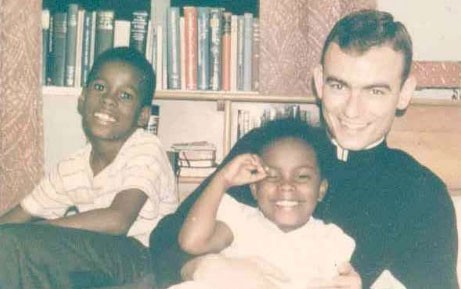A March 11 article in the Washington Post began with these two paragraphs:
- “The GOP’s national push to enact hundreds of new election restrictions could strain every available method of voting for tens of millions of Americans, potentially amounting to the most sweeping contraction of ballot access in the United States since the end of Reconstruction, when Southern states curtailed the voting rights of formerly enslaved Black men.”
- “In 43 states across the country, Republican lawmakers have proposed at least 250 laws that would limit mail, early in-person and Election Day voting with such constraints as stricter ID requirements, limited hours, or narrower eligibility to vote absentee, according to data compiled as of Feb. 19 by the nonpartisan Brennan Center for Justice. Even more proposals have been introduced since then.”
With that article and others like it, I cannot get Jonathan Myrick Daniels out of my head.
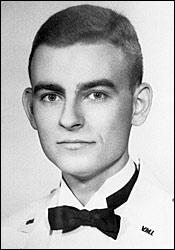
Daniels
Daniels, a student at Episcopal Theological Seminary in Cambridge, Mass., was murdered on Aug. 20, 1965, in Haynesville, Ala. He was there to protest segregation and aid in voter registration for African American citizens.
Doing so, Jonathan and 22 other volunteers with the Student Nonviolent Coordinating Committee, Black and white, were arrested for challenging voter suppression in Fort Deposit, Ala., and taken to the Hayneville County Jail. Following their release on Aug. 20, Daniels and Catholic priest Richard Morrisroe joined two African American teens, Joyce Bailey and Ruby Sales, to purchase soft drinks at a nearby store.
At the door they were confronted by part-time deputy Tom Coleman, who pointed his shotgun at Ruby Sales. Jonathan Daniels pushed her to the ground and took the fire, dying instantly. Coleman reportedly addressed Sales: “N_____, you see what happened to him? You’d better get out of here now unless you want the same thing to happen to you.” He then fired on Father Morrisroe, severely wounding him.
“One of the most heroic Christian deeds of which I have heard in my entire ministry was performed by Jonathan Daniels.”
On hearing the news, Martin Luther King Jr. stated: “One of the most heroic Christian deeds of which I have heard in my entire ministry was performed by Jonathan Daniels.” In his 1968 book, Free to Live, Free to Die (where I first read the Daniels story) Malcolm Boyd, social activist and Episcopal priest, wrote that at the memorial service in Jonathan’s home parish at Keene, N.H., “I realized how in his own person, Jonathan brought together the freedom movement and the Christian church. In the face of a bitterness which ultimately denied him a memorial service in Selma’s Episcopal parish itself, he had sought to be an instrument of reconciliation; he had loved in the face of hate.”
That one tragedy is made more horrendous by the fact that Daniels was not the only person to lose his life on behalf of the right, the freedom, to vote. Even this brief litany illustrates the greater cost. The names are taken from the list of “Civil Rights Martyrs” prepared by the Southern Poverty Law Center.
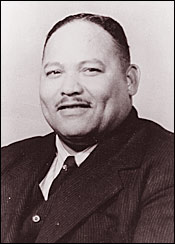
Lee
May 7, 1955, Belzoni, Miss.: Rev. George Lee, “one of the first Black people registered to vote in Humphreys County, used his pulpit and his printing press to urge others to vote. White officials offered Lee protection on the condition he end his voter registration efforts, but Lee refused and was murdered.”
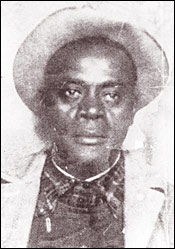
Smith
Aug. 13, 1955, Brookhaven, Miss.: “Lamar Smith was shot dead on the courthouse lawn by a white man in broad daylight while dozens of people watched. The killer was never indicted because no one would admit they saw a white man shoot a Black man. Smith had organized Blacks to vote in a recent election.”
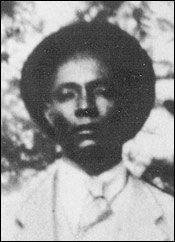
Lee
Sept. 25, 1961: Herbert Lee “who worked with civil rights leader Bob Moses to help register Black voters, was killed by a state legislator who claimed self-defense and was never arrested. Louis Allen, a Black man who witnessed the murder, was later also killed Jan. 31, 1964.”
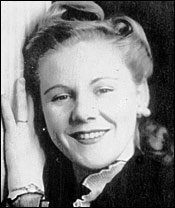
Liuzzo
March 25, 1965, Selma Highway, Alabama: “Viola Gregg Liuzzo, a housewife and mother from Detroit, drove alone to Alabama to help with the Selma march after seeing televised reports of the attack at the Edmund Pettus Bridge. She was ferrying marchers between Selma and Montgomery when she was shot and killed by a Klansman in a passing car.”
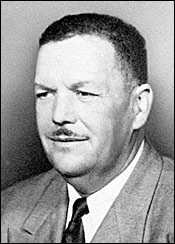
Dahmer
Jan. 10, 1966, Hattiesburg, Miss.: Vernon Ferdinand Dahmer “a wealthy (African American) businessman, offered to pay poll taxes for those who couldn’t afford the fee required to vote. The night after a radio station broadcasted Dahmer’s offer, his home was firebombed. Dahmer died later from severe burns.”
The list goes on and on. Let us not fool ourselves. The murder of Jonathan Daniels, those listed here, and others with them remind us that the struggle for voting rights in America was and remains a holy calling for those who seek to “do justice, love mercy and walk humbly with God” according to Micah 6:8.
The injustices of the more than 200 proposed “voting rights” laws are particularly telling because the effort is built on a gigantic national lie, that the 2020 presidential election was “stolen” because of massive voter irregularities, charges that are substantially refuted by courts and election officials nationwide.
“The effort is built on a gigantic national lie, that the 2020 presidential election was ‘stolen.'”
That lie is now compounded by additional fabrications that voting restrictions are needed to reassure voters that elections are valid. As Georgia state Rep. Barry Fleming, an AWANA Bible teacher at the Harlem Baptist Church and chief sponsor of the revised voting regulations says, “House Bill 531 is designed to begin to bring back the confidence of our voters back into our election system.” Yet that “confidence” was actually weakened not because the election was “rigged” (which it was not), but because an entire political party has posited fraudulent claims about it. Surely a Bible teacher like Rep. Fleming knows Proverbs 17:4, “A liar giveth ear to a naughty tongue.”
The murders of Jonathan Daniels, et al., listed here and beyond, document this sobering truth: The right to vote in the land of the free and the home of white supremacy is literally a matter of life and death. S.N.C.C. leader Stokely Carmichael, jailed with Daniels before the murder, jotted these notes on his program from the memorial service: “Jon did not die for us all. His life was taken from him. John lived for us all … . Jon was not a follower of Christ. He lived like Christ.”
Not long before his death, Jonathan Daniels wrote: “Fire and ice . … the advantages of both may be obtained with ease in the black belt. Light, dark, white, black: a way-of-life blurs, and the focus shifts … . Reality is kaleidoscopic in the black belt. Sometimes one’s vision changes with it. A crooked man climbed a crooked tree on a crooked hill. Somewhere, in the mists of the past, a tenor sang of valleys lifted up and hills made low. Death at the heart of life, and life in the midst of death. The tree of life is indeed a cross.”
We’d best not forget that eternal truth, on the way to Good Friday, and, yes, to the voting booth.

Bill Leonard
Bill Leonard is founding dean and the James and Marilyn Dunn professor of Baptist studies and church history emeritus at Wake Forest University School of Divinity in Winston-Salem, N.C. He is the author or editor of 25 books. A native Texan, he lives in Winston-Salem with his wife, Candyce, and their daughter, Stephanie.

